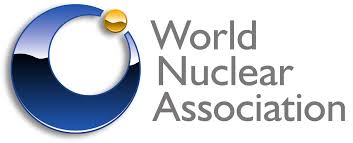Part 1 of 3 Parts
I recently posted about how the European Union (E.U.) is working to remove the need to import nuclear fuel and nuclear technology from Russia. Although there are severe sanctions on the import of fossil fuels from Russia by members of the E.U. because Russia invaded Ukraine, there are no serious sanctions on the import of nuclear fuel and nuclear technology from Russia. This allows Russia to threaten the E.U. nuclear industry with restrictions on nuclear fuel and technology. While some E.U. nations are shutting off their nuclear reactors permanently, other E.U. nations, especially in Eastern Europe are dependent on Russian nuclear fuel and Russian nuclear power reactors to supply electricity to their grids.
Some nations that utilize nuclear power outside of the E.U. are also grappling with the threat of nuclear fuel and energy export restrictions by Russia. Since Russia invaded Ukraine, Russian nuclear exports have actually increased while Russian exports of fossil fuels including coal, oil and natural gas have been reduced.
Russian state monopoly Rosatom played a big part in the Russian capture and takeover of the Zaporizhzhia nuclear power plant in Enerhodar, eastern Ukraine, but Rosatom remains untouched by Western sanctions. The reason for this, according to experts, is that the nuclear supply chain is complicated from the supply of uranium to the construction of reactors. Russia currently plays a dominant role in many parts of the supply chain.
The Russian global nuclear network can exert political and economic pressure on friends and foes alike. A new partnership between the U.K., the U.S., Canada, Japan, and France is working to change this situation.
These five countries are working together to reduce Russia’s share of nuclear exports and “ensure Putin, nor anyone like him, can ever think they can hold the world to ransom over their energy again,” according to U.S. Energy Security Secretary Grant Shapps. The group intends to become independent from Russian nuclear fuel and technology. The agreement urges other countries to do the same.
Most experts agree that these are achievable goals. However, they will require time, resources and close collaboration. Lincoln Hill is the head of policy at the Nuclear Industry Association. (NIA) He said, “The main challenge is to get out of the asymmetric mindset we’ve been in. In the past, the West has seen this as a purely commercial, market-based situation and the Russians approached it as a strategic priority, so our companies were undercut and struggled to compete.”
Raw uranium is no longer used to fuel nuclear power reactors. This means that the nuclear fuel supply chain is currently divided into four parts. These include uranium mining, conversion, enrichment and fuel fabrication.
Russia’s share of the world’s mining of uranium is about five percent. Kazakhstan, Namibia, Canada, Australia and Uzbekistan are all mining uranium at higher levels of production.
Only France, China, Canada and Russia were running conversion plants to refine uranium in 2020. Russia is responsible for thirty eight percent of the total output. This information was provided by the World Nuclear Association.
Russia controlled about forty six percent of the globes current of planned enrichment capacity. It also controls between fifteen and nineteen percent of the stages in fuel fabrication.
Please read Part 2 next
